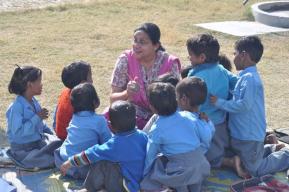News
Holding powerful polluters to account with digital tools in West Africa

With many international and national companies involved in the exploitation of natural resources in Africa, it is paramount that the local media can hold these actors to account, keeping the public informed and ensuring compliance with environmental standards and commitments. Using science and technology to support African media in covering environmental issues, is at the heart of UNESCO’s mandate.
The project, which will be implemented in Ghana, Nigeria, Cameroon and Gabon, two English-speaking and two French-speaking West African countries, will train news teams from leading media organisations to use cutting-edge open-source intelligence tools for investigating and reporting on environmental issues. These tools include satellite imagery, databases on wind, weather and vessel movements, topographic data, 3-D modelling, geolocalisation and digital maps.
The skills will help the press outlets use technology to monitor, research, sort and analyse data from numerous public sources while reporting on the climate change situation at the national or local level.
UNESCO will also train these news teams on how to research public records for their coverage, such as climate change laws and regulations, official declarations, parliamentary and local political decisions, tax and company information.
Once UNESCO’s project is completed, the participating news teams will be able to expose environmental degradation actors who profit from unsustainable practices in political or commercial ways. The media will be able to report on discrepancies between the reality on the ground and the officially communicated climate change situation, as well as highlight empty posturing from utility companies, inform on politicians’ policy-making records in comparison to campaign promises, and foil attempts at greenwashing. Furthermore, the news teams will be able to contextualize climate change solutions for the public, revealing both effective and ineffective environmental measures.
UNESCO defends and promotes freedom of expression, media independence and pluralism, as well as the development of inclusive knowledge societies based on universal access to information and the innovative use of digital technologies.
As part of its mandate to foster media development, UNESCO supports media in crisis preparedness and response, including climate change mitigation and adaptation as well as disaster risk reduction.
For more information about UNESCO’s activities in this field, please contact Mirta Lourenco at m.lourenco@unesco.org.






